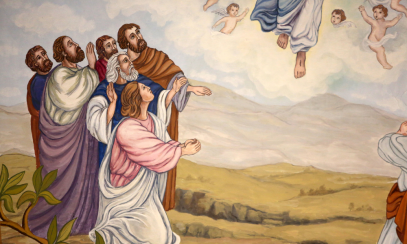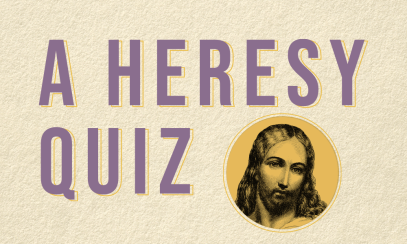Are All Religions Simply Different Paths to the Same God?
In his work, “The World’s Religions,” author Huston Smith highlights an 19th century Hindu saint, Ramakrishna, as an illustration of a conviction that the various major religions are alternate paths to the same goal. Ramakrishna, after experiencing each of the major religions, concluded that there existed an essential unity among them. He wrote, “God has made different religions to suit different aspirations, times, and countries. All doctrines are only so many paths; but a path is by no means God Himself.” A more contemporary version of this argument runs like this: all religions are like the spokes of a wheel that all end in the same center. The question, of course, is can this be right?
A Return to Ancient Wisdom
Let us turn to Aristotle’s law of non-contradiction in our consideration of the validity of universalism, or universal salvation. This law states that opposite truth claims cannot both be true, and it remains instructive as we explore the argument that all religions are ultimately different paths to the same God.
The reality is that every religion makes absolute truth claims about God. For example, Catholics and other Christians declare that God is a Trinitarian communion of Father, Son, and the Holy Spirit. Islam holds that God is simply one. Hinduism acknowledges the existence of hundreds of deities, while Buddhism seems to be without a belief in God, at least a personal God.
In terms of logic, we can affirm the validity of this diversity of absolute truth claims about God from a subjective point of view. There is no reason to doubt the earnestness of the beliefs held by the faithful of each religion. However, the law of non-contradiction seems to rule out the possibility that each religion’s understanding of God is equally valid and true from an objective point of view.
This would seem to suggest that all religions do not ultimately lead to the same God since all religions do not believe in the same God. The exception to this might be if all religions are equally wrong about who God is. This, of course, would mean that all religions are equally invalid and untrue, which ultimately undermines all religions since they rest precisely on their absolute truth claims.
What does the Church say?
On Oct. 28, 1965, Pope Paul VI issued the Vatican II document entitled the Declaration on the Relation of the Church to Non-Christian Religions (Nostra Aetate). It identifies the desire and search for God as one of the major factors that contributes to the unity of all peoples. It also acknowledges the ways other religions have understood God and humanity’s relationship to God.
Most significantly, Nostra Aetate states, “The Catholic Church rejects nothing that is true and holy in these religions. She regards with sincere reverence those ways of conduct and of life, those precepts and teachings which, though differing in many aspects from the ones she holds and sets forth, nonetheless often reflect a ray of that Truth which enlightens all.”
At the same time, the document makes it clear that the Church, “proclaims, and ever must proclaim Christ ‘the way, the truth, and the life’ (John 14:6), in whom [all] may find the fullness of religious life, in whom God has reconciled all things to Himself.”
Catholics are called to affirm and celebrate the truth wherever it is encountered. However, this is not the same as declaring all religions to be different paths to the same God. The Church holds to the absolute truth claim that the fullness of the truth resides in the Catholic faith, for the truth is a person, Jesus Christ, and the Church is his body.
In closing
It is true that all major religions share some things in common: a wisdom tradition, some version of the Golden Rule, and articles of faith. However, as Huston Smith notes in his final chapter, once one moves beyond such vague generalities, one discovers that religions differ greatly in what is considered essential. He looks to the schisms between Hinduism and Buddhism; between Judaism, Christianity and Islam; and within Christianity itself to underscore the point.
The argument that all religions are different paths to the same God appeals to our desire for unity and togetherness. However, the price for such a belief is twofold. First, one must ignore the real differences between religions on essential questions. This is a form of minimization that refuses to take religious beliefs seriously in the name of a false unity. Second, one must actually delegitimize religion altogether, albeit in the name of respecting all religions, by declaring all absolute truth claims of religion to be simply relative. With this, the arduous search for genuine truth is abandoned.



